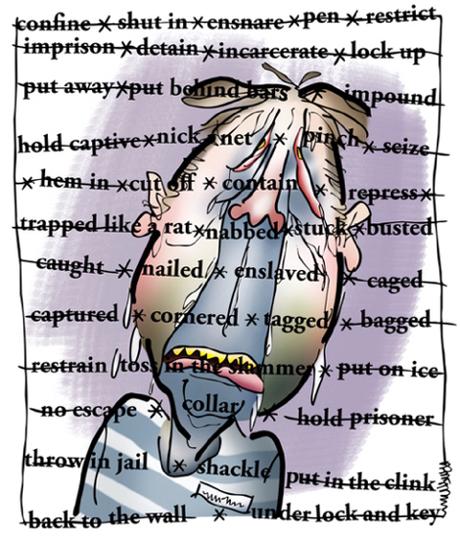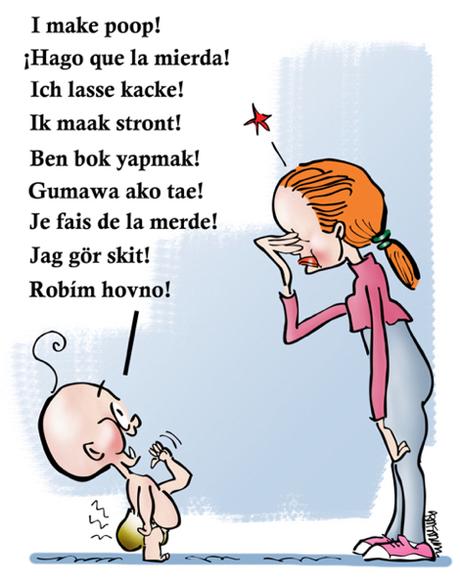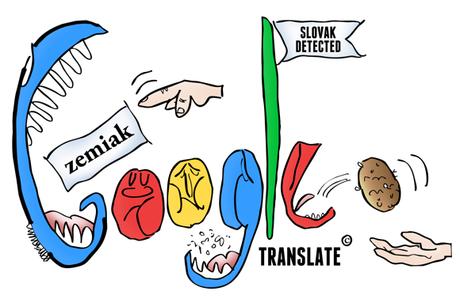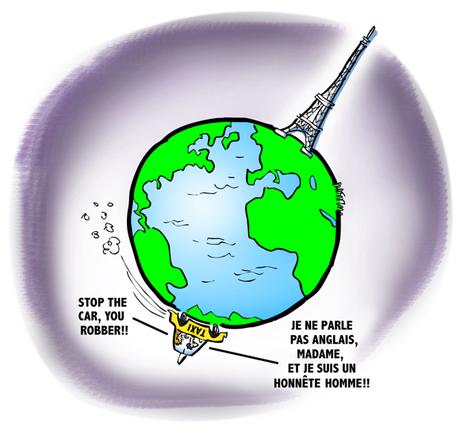I illustrate articles for The Rumpus. One of the most interesting was Nerozumieš: You Don’t Understand.
It’s a first-person account of an American who moves to Slovakia to teach English in a small vocational secondary school.
A brave move, because he doesn’t speak Slovak. He figures he’ll learn it as he goes along.

Strangers introduce themselves to me in Slovak. On len hovorí po anglický, my friends interrupt. He only speaks English.
Nerozumieš? the stranger asks me, a little unsure. You don’t understand?

The essay conjures up intense feelings of isolation, because so often, the author can’t understand what others are saying.

“It’s hard here, being trapped in my language. People look at me like I’m stupid
and I think everyone is insulting me to my face.”



Like many Americans, I’m a monoglot. There isn’t an immigrant in my family
since the 19th century and though very little of me is ancestrally English, these
are the words with which I understand the world.
I have wished for years that I had tried to learn another language at an earlier
age. I wish my parents exposed me, in whatever way possible, to languages other than English.



My best friends are the school principal, the pawnbroker, the preteen boys who
let me join their soccer games, the upholstery cleaner, and the pharmacist… Each time I meet them for beer or food, they point to items in the room and speak a
sound I find difficult to retain.
Zemiak, they say, lifting a boiled potato from their soup.



My mother likes to tell a story about her first trip abroad, in her fifties as a chaperone to my sister’s Girl Scout troop: she and my sister became separated from the group in downtown Paris and had to take a taxi back to their hotel… the taxi driver, who explained in broken English that he didn’t understand her, ended up taking an extremely long route through the chaotic midday traffic. My frustrated mother demanded he stop the car, and then he made a few turns and they found
the hotel.
He understood me, she will say. He just wanted to cheat me out of an extra buck.
Maybe he just didn’t speak English, Mom, I will say.
He knew exactly what I was saying.
How do you know?
He knew.




I have labeled everything in my flat with yellow Post-It notes: OKNO sticks to
the window at my side and STOLIČKA to the empty chair beside me. I imagine scenarios and I rehearse them on paper, to the walls, sitting on the toilet.




I know that to my neighbors, who can surely hear me through these thin, communist-era walls, I must sound like a fool. Čia je to lampa? I say to myself. Whose lamp is it? over and over again. Tvoja! I imagine them shouting. Yours!
It’s your lamp! I know that my students will giggle each morning when I wave
to the janitor and return his dobré ráno. But I am practicing, I am blundering—
I am trying, a word at a time, to speak myself out of the silence.

* * * * * * * * * * * * * * * * *

Thoughts? I’d appreciate your feedback.

